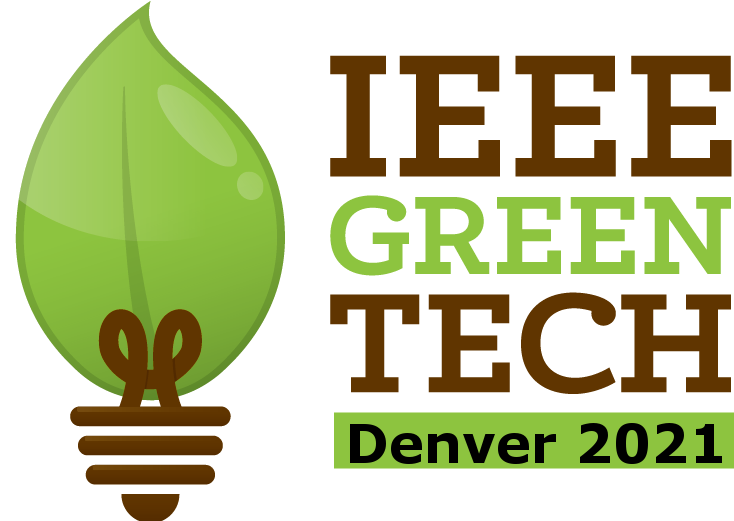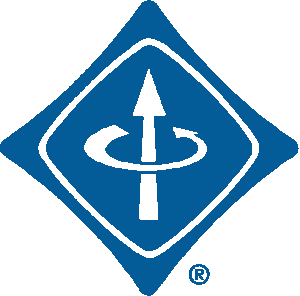 |
 |
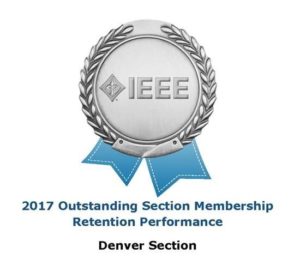 |
|
In This Issue Message From the Chair Editor’s Column Conferences/Summits/Call for Papers/Workshops/Tutorials IEEE Happenings 2021 GreenTech & R5 IEEE Denver Social Media Upcoming Events |
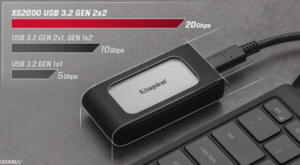
New! – Cool Products A 2-Tb USB 3.2 thumb drive. Cool device; great for packing around large amounts of data. Fast – I have been getting 1-Gb with older USB 3.1. This thing screams and the form factor is compact. Go to Kingston if you want to know more. |
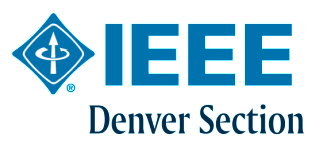
|
GET INVOLVED!!
Whether you are active in IEEE ExCom, are a chair of a
 technical society, or just a paying member, we thank you for being a part of something that we think is pretty great. If you want to get more involved, you know where to find us! And if you just want to enjoy the hard (and not-so-hard) work of our volunteers by attending our events we would love that even more! Take advantage of the monthly volunteering efforts we have put together for you. Try something new, meet some new people, and learn something new by listening to a distinguished lecturer. Oh, and thank you for being a reader of our newsletter! technical society, or just a paying member, we thank you for being a part of something that we think is pretty great. If you want to get more involved, you know where to find us! And if you just want to enjoy the hard (and not-so-hard) work of our volunteers by attending our events we would love that even more! Take advantage of the monthly volunteering efforts we have put together for you. Try something new, meet some new people, and learn something new by listening to a distinguished lecturer. Oh, and thank you for being a reader of our newsletter! |
|
Local Events News Interesting Links
|
Follow IEEE-Denver on Social Media! by Jackie Adams |
|
AGL eDigest Newsletter – Current Happenings in the Wireless Space |
Hot Topics
| On the Edge – A flagship B5G/6G vision – An intelligent fabric of technology enablers connecting human, physical, and digital worlds | Insight – The Future of Automotive Connectivity |
| Guest Column – Progress On General-Purpose Quantum Computers |
Tech Talk – How to Select the Right Digital Isolator for Your Design |
| Technical Articles and While Papers |
| User-Centric, Ultra-Dense Networks for 5G In Urban Areas – By Azizi Othman |
| Wireless Power Measurements From First Principles – By Aurora Insight |
| The Secret to Quiet, Efficient BLDCs: The Motor Driver – By Lou Frenzel |
| Benefits Of Inert Gas Soldering For Printed Circuit Board Assembly Processes – By Dr. Jerry Wu, Gregory K. Arslanian, Emily Tan |
| Security Issues In 5G Device-to-Device Communication – By A.S.Khan, Yasir Javed1, J. Abdullah, J.M.Nazim, N.Khan |
| Low Power Wide Area Networks: An Overview – By Usman Raza, Parag Kulkarni, and Mahesh Sooriyabandara |
| Choosing Power Inductors For LiDAR Systems – By Coilcraft |
| COTS Software-Defined Radio For 5G Development – By Bob Muro |
| Getting IoT Security Right By Ericsson |
| End-to-End Simulation of 5G mmWave Networks – By Marco Mezzavilla, Menglei Zhang, Michele Polese, Russell Ford, Sourjya Dutta, Sundeep Rangan, and Michele Zorzi |
|
|
Follow IEEE-Denver on Social Media!Follow along with the local events and happenings of your IEEE Denver section by subscribing on social media. And don't forget to "like" and share your favorite posts!
-Facebook Page- –LinkedIn Group- –LinkedIn Page-
| Message from Jim Sipes, Chair, IEEE Denver Section – jsipes@ieee.org
As mentioned in our last newsletter, the IEEE held its annual elections for president-elect and regional director-elect, with balloting closing October 1. Professor Saifur Rahman was elected IEEE president-elect and will take office effective January 1, 2022; he will succeed Ray Liu as IEEE President on January 1, 2023. Dr. Rahman is a professor of computer and electrical engineering at Virginia Tech. Matt Francis, currently chair of the East Area of Region 5, was elected Region 5 Director-elect. Since Region 5 directors serve a term of two years, Matt will become Region 5 director on January 1, 2024, after serving two years as Vice Chair/Director-elect. It is interesting to note that, of the 292,833 ballots mailed out to the IEEE membership, only 45,680, or 15.6%, were returned. IEEE Society chapters and groups within the section are continuing to hold technical meetings on a regular basis. The section website has an event feed at https://ieee-denver.org that is a great source for seeing what is going on within the section and in the area. The section also has a Meetup group, IEEE Denver Events, which is open to all and is used by the chapters to publicize events. To join this Meetup group, go to https://www.meetup.com/IEEE-Denver-Events/. Yet another way to explore events happening across Region 5 is through the region’s IEEE Collabratec community. Since many of the events are held as virtual meetings, it is an opportunity to remotely join meetings of interested hosted by other entities within the region. The R5 Collabratec community is open to all members of the region. Collabratec also offers the opportunity to join a broad set of communities of varying interests across IEEE. If you’ve not explored Collabratec, it is available at https://ieee-collabratec.ieee.org. Following a successful Green Technologies conference this past April, we are continuing to increase our support of local conferences. The section is co-sponsoring with the Magnetics Society the 20th Biennial Conference on Electromagnetic Field Computation (CEFC2022) to be held in Denver in October 2022. We are also planning the IEEE Green Technologies/Region 5 Annual Meeting (GreenTech2023) to be held in Denver in April 2023. Plans are also underway for the 2024 International Communications Conference, co-sponsored with the IEEE Communications Society, to be held in Denver in June 2024. As always, we continue to have many opportunities to contribute as a volunteer to the Section or to your Chapter/Group of choice, and all are welcome at the monthly virtual ExCom meetings on the third Tuesday of the month (except December and July). There is a listing of the current chapters and groups supported by the Denver Section on the Section’s website, https://ieee-denver.org, under the menu heading Denver Groups. Contacts for each of the chapters/groups are available on the individual chapter/group websites. That’s all for now, so until next time, stay safe, and have a happy holiday season. From the Editor’s Desk, Ernest Worthman – ernest_worthman@ieee.org Will The Digital Power Brokers Be The Governments of the 22nd Century? As the digital age evolved, the techno-purists envisioned that this brave new world would be one to make our lives easier. Having unbridled access to information and online activities would create an ecosystem where simple clicks of a mouse or taps of a payment app would greatly enhance our everyday work and leisure. Certainly, the digital revolution has enhanced our lives. Everything from work to dating has benefitted from technology. But there also evolved a darker side. And part of that darker side has nothing to do with technology. It is the political and economic fallout that is looming in the upcoming years. Today, these internet giants are moving as fast as they can to define this digital space to their benefit. It has been a good forty years and a much different world than the visionaries, geeks, and forward thinkers of the early years predicted. While they saw the march of technology, few saw the emergence of an economic ecosystem where digital giants such as Alphabet, Amazon, Facebook, and players like Elon Musk would yield the type of power they currently have. And even fewer saw that there would be the face-off we currently have between big tech and governments. For a few years now, governments (and while this is global, this missive refers mostly to our, and other western governments) have been trying to rein in the power that these organizations have amassed; so far with little success. Therefore, the question arises “does the government have now, or in the future, the ability to continue this governance of today? I believe the answer to that is no. Capitalistic societies, such as ours, lack what countries with autocratic governments have; the ability to use extraordinary means to control organizations – period. We must exercise control via a complex and often clumsy, legal process – even if the organizations act on the fringe of lawfulness. Countries such as China, Russia, Korea, the middle east, and other nations can simply take over the company, throw people in jail and force the company to comply. Simply put, autocratic countries can deal with the Amazons and Googles any way they wish. We cannot. And thusly, we begin the long slog to attempt to control how these mega-monopolies operate. However, there are some who believe our government will not likely succeed for a number of reasons. First, these organizations have a huge war chest. They can hire the best and brightest legal eagles to go against often much less experienced government lawyers. This, even if legislation is passed to manage them. Next, they have a huge economic impact on society and a global presence – not just national. One can only imagine the chaos and rebellion that would occur if suddenly Facebook were cut off at the knees, not to mention the financial crisis that would develop. Third, technology would take a hit. These organizations are at the forefront of so many platforms and technologies – AI, applications and algorithms, virtual reality, and so much more. And, they can go where the government stumbles, nowadays. A grand example of that is the privatization of the space program. Truth be told, trying to bound these companies may do some good in certain areas, but the collateral damage will be significant. On the other hand, having control and power over information has some upsides. Take the insurrection of the Capitol last spring. None of their actions in the immediate aftermath of the insurrection came at the behest of the government or law enforcement. These were private decisions made by for-profit companies exercising power over code, servers, and regulations under their control. They were the ones that went to work mitigating the information by doing things such as shutting down Trump on social media, removing inciteful messages and quisling information. They succeeded where governments failed. And, while big tech certainly serves itself, unlike the government, that self survives on satisfying the masses. They need to behave in such a way that their customers and users are not alienated. They have an internal mechanism that applies constraints on their power to act. They maintain global foreign relations and answer to constituencies, including shareholders, employees, users, and advertisers. So, perhaps the government’s sledgehammer approach to breaking up these corporate behemoths may not be the best vector to pursue. Perhaps it is more of a time for collaboration. While it may seem absurd to some, I believe there is the possibility that big tech may become bigger than the government. It has already wrested control of digital space from governments, freeing itself from national boundaries and emerging as a truly global force. Is it possible that elite nation-state dominance is coming to an end, supplanted by an elite techno circle of organizations that assumes responsibility for offering the public goods once provided by governments? Certainly, that is a ponderable prescient. We no longer live in an era where smoke-filled rooms of political power brokers decide the fate of companies, as was the case with the breakup of the old Bell Telephone, Standard Oil, US Steel, and others. Today’s mega-technology firms have two critical advantages that have allowed them to carve out independent geopolitical influence. First, they operate and wield power, almost exclusively, in the digital space. Second, their influence in the digital space is global and difficult to corral. They exercise primary influence in a vast territory, which governments do not and cannot fully control (as well as fully understand). This brave new world is rapidly outpacing governments’ abilities to manage global prosperity and has created a digital economy that disintermediates the political ecosystem of services. The rise of digital currency is proof of that. Cryptocurrencies are proving too much for regulators to control, and they are gaining wide acceptance, undermining governments’ sway over the financial world. The single most enabling force of these digital organizations’ rise to power is location irrelevance. Governments exercise power over physical assets. Digital companies have no such impediment. Facebook substitutes for the public square, civil society, and the social safety net, creating a blockchain-based currency that gains widespread usage. Musk plays an ever-greater role in deciding how space is explored. The signs are certainly there. Does this sound like the antithesis of Orwell’s 1984? Or did I just smoke a little too much pot? Already there are signs of the techno-elite’s power as attempts by governments to reel them in have largely failed. Perhaps it is time for all sides to sit down at the table and find a solution that does not pit one side against the other. The digital society is here to stay. Governments better figure that one out. Conferences/Summits/Call for Papers/Workshops/Tutorials IEEE Vehicular Networking Conference (VNC) -02021
View the Full Program here. Keynote Speakers: Speaker: Prof. Jérôme Härri, EURECOM – Title: Knowledge on Wheels – Challenges and Opportunities of Vehicular Knowledge Networks Speaker: Michael Buchholz, Ulm University – Title: Supporting Connected Automated Vehicles with Intelligent Infrastructure Speaker: Dr. Karsten Schmidt, Audi AG – Title: Pitfalls and Solutions Introducing Security into Modern In-Vehicle Networks Panel: Panel: The Information Superhighway for Vehicles of The Future – How Many Lanes of Bandwidth? Organizer: Dr. Jim Lansford, Qualcomm Panelists:
Sessions:
Complimentary registration for IEEE, ComSoc and ITSS Student members only, please contact Shirley Cisneros at s.cisneros@comsoc.org for the promotional code. IEEE Global Communications Conference (GLOBECOM 2021) The 2021 IEEE Global Communications Conference (GLOBECOM 2021) will be held in Madrid, Spain, from 7 -11 December 2021. Themed “Connecting Cultures around the Globe,” this flagship conference of the IEEE Communications Society will feature a comprehensive high-quality technical program including 12 symposia, selected areas in communications track and a variety of tutorials and workshops. IEEE GLOBECOM 2021 will also include an attractive Industry program aimed at practitioners, with keynotes and panels from prominent research, industry and government leaders, business and industry panels, and vendor exhibits. -Cognitive Radio and AI-Enabled Networks –Communication and Information System Security –Communication QoS –Reliability and Modeling Selected Areas in Communications: – Aerial Communications – Big Data – Cloud Computing, Networking and Storage – E-Health – Full-Duplex Communications – Machine Learning for Communications – Molecular, Biological and Multi-Scale Communications – QuantumCommunications and Computing – Satellite and Space communications – Smart Grid Communications -Social Networks International Conference on Advanced Networks and Telecommunications Systems (ANTS) IEEE ANTS is a premier IEEE conference on advanced networking and telecommunications topics. The event facilitates an intense dialogue between academic and industry to bridge the gap between academic research, industry initiatives, and governmental policies. IEEE ANTS 2021 will be held at Institute for Development and Research in Banking Technology (IDRBT) Hyderabad which was established by the Reserve Bank of India (RBI) in 1996. The theme of the conference, “Ubiquitous Digital Connectivity and Economic Prosperity for All“, will foster an environment for deliberating on different research aspects on the said topic. Deadlines for contributions have passed. Conference dates are: 13-16 December 2021, Hyderabad, India Military Communications Conference (MILCOM)29 November – 2 December 2021; San Diego, CaliforniaThe Military Communications Conference (MILCOM) will be held in San Diego, California on 29 November–2 December 2021. This conference is the premier forum for collaborators across industry, government and academia to share research related to military communications. Call for Papers: MILCOM 2021 solicits technical papers and proposals for tutorials and panels on current and emerging topics applicable to all facets of military communications, covering the following areas:
IEEE Consumer Communications and Networking Conference The 2022 IEEE Consumer Communications and Networking Conference (CCNC) will be held from 8-11 January 2022 in Las Vegas, Nevada. We are accepting paper submissions on the following topics:
IEEE/IFIP Network Operations and Management symposium Consumer Communications and Networking Conference The 18th IEEE/IFIP Network Operations and Management Symposium (NOMS 2022) will be held on 25-29 April 2022 in Budapest, Hungary. NOMS 2022 will offer various types of sessions: keynotes, technical, experience, demo, tutorial, poster, panel, and dissertation. PAPER SUBMISSION GUIDELINES https://jems.sbc.org.br/noms2022 The authors of the best 15 technical papers will be invited to submit extended versions of their papers to a fast-track reviewed Wiley’s International Journal of Network Management (IJNM) or IEEE Communications Magazine series on Telecom Software, Network Virtualization, Software Defined Networks. All submitted papers will be peer-reviewed. Accepted and presented papers will be published in the conference proceedings and submitted to IEEE Xplore. IMPORTANT DATES TECHNICAL PROGRAM COMMITTEE CO-CHAIRS Contact Email: noms2022tpc@comsoc.org IEEE International Conference on Blockchain and Cryptocurrency; 2–5 May 2022 // Shanghai, China
IEEE International Conference on Blockchain and Cryptocurrency (ICBC 2022) is seeking submissions of technical papers (both full and short), posters and tutorial proposals in the following areas related to blockchains and cryptocurrencies:
Paper Submission Deadline: 6 December 2021 IEEE International Symposium on Dynamic Spectrum Access Networks (DySPAN) The IEEE International Symposium on Dynamic Spectrum Access Networks (DySPAN) will be held virtually on 13–15 December 2021. DySPAN is a unique conference that mixes technology and policy issues, thereby becoming the premier meeting for sharing and exploring advanced spectrum technologies. This event is a premier platform for presenting and discussing standards-related topics in the areas of communications, networking, cloud computing, and related disciplines, facilitating standards development as well as cooperation among the key players. We are currently accepting paper submissions for DySPAN 2021 on both technology and policy issues that pertain to all aspects of advanced spectrum technologies 5G and Beyond Emerging Wireless Communications. View the full Call for Papers. Submission Deadline: 1 October 2021 IEEE Vehicular Technology Magazine Special Issue Call For Papers Special Issue on Recent Advances in Automated Driving Technologies
We live in the era of the advent of automated vehicles. These machines will bring dramatic changes to both the automotive industry and everyday life, revolutionizing the concept of passenger mobility. Perception is crucial for an autonomous vehicle, and presents important challenges, many of which are still to be addressed. The choice of sensors is pivotal, yet there is still no general consensus on what the “best” sensory equipment should consist of. Perception-related information is then used to make timely decisions on path planning and vehicle dynamics control, to ensure efficient and safe vehicle behavior. In this context, the importance of the role of machine learning algorithms is increasing quickly, in the generation of trajectories perceivable as “natural” by the car occupants for example, or in object recognition. This Special Issue encourages researchers working in this field to share their latest developments on sensing and perception, path planning and decision making, machine learning and control using data-driven learning or physics-driven algorithms, focusing on technologies directly applicable to autonomous vehicles. The topics of interest include, but are not limited to:
Submitted papers should contain state-of-the-art research material presented in a tutorial or survey style. All manuscripts should contain state-of-the-art material presented in a tutorial or survey style, and must adhere to IEEE VTM guidelines. Submit PDF version of complete manuscripts to https://mc.manuscriptcentral.com/vtm-ieee Guest EditorsBasilio Lenzo Ricardo de Castro Yan Chen Shaobing Xu Dongpu Cao Xudong Zhang Future Directions upcoming events Join us for the 1st IEEE Future Directions Smart Lighting Workshop with the theme “#SmartLighting for #SmartCities” Watch Stephen Welby, Mark Lien, Georges Zissis, Larissa Paredes Muse, Mark Rea, Marco Dalla Costa, Nelson Spode, Ashok Jagatia, Bruno Foucras, Teri Nolan-Range, and Toby Cumberbatch speak about the latest advancements in the topic! Artificial light absorbs 13-14% of the world’s electricity annual production. Today, we are witnessing a transition from the conventional “analogue” lighting technologies towards “digital” lighting. Smart lighting will become the backbone for smart cities and homes. The objective is switching to smart human-centric lighting driven by both “efficiency” and “quality of light”. Next generation street lighting systems should provide the “Right Light” with the best efficiency and quality, when and where it is needed. This chapter will highlight all the above-mentioned issues and will focus on the future of lighting systems and their contributions to the sustainable development of smart cities.
GreenTech 2021 & R5 Annual Meeting Denver Section will be again hosting the GreenTech & R5 Annual Meeting in 2021. The Students Robotics Competition is an exciting part of the the R5 Annual Meeting. The Conference Organizing Committee is forming up if you’d like to be involved in making this great fun conference happen, please contact conferences@ieee-denver.org. by Ian MacMillan You can see all of our upcoming events on the IEEE Denver Events Calendar The IEEE Denver Section is comprised of over 3600 engineers and technical professionals in the Denver – Boulder area. Mission Statement Enrich the professional and personal lives of the Rocky Mountain Region members, developing them into valued contributors to society through quality programs, continuing education, career development and community service; in collaboration with IEEE, industry, government and academia.
|
|||||||||||||||
|
|
|||||||||||||||







 The
The 
